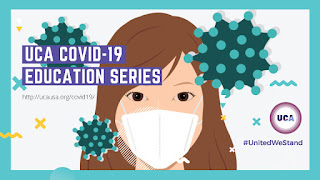1: What to do if you are sick?
Q: What can I do if I am sick?
💁Tracy: If you have mild symptoms, such as low-grade fever, mild dry cough and mild fatigue, don’t panic!
It might be COVID-19 or just an ordinary cold! Considering the following to help yourself and protect other people around you.
- Check CDC's "Self Checker" on symptoms and guidance.
- Stay home and remain in self quarantine.
- Wear a mask if you have to interact with others in the family, and keep yourself separated from them.
- Call your doctor for medical advice.
- Get a test for COVID-19, if available, check your county's public health website to get the most updated testing instruction.
| If you develop emergency warning signs for COVID-19, get medical attention immediately! Emergency warning signs include*: • Difficulty breathing or shortness of breath • Persistent pain or pressure in the chest • New confusion or inability to arouse
• Bluish lips or face (low oxygenation level) Other symptoms or issues that put you at risk * This list is not all inclusive. Please consult your medical provider for any other symptoms that are severe or concerning. (Source: CDC Website) |
Visual Tips: How to stay away from others?
💁Tracy’s Tips on how to take care of yourself and protect others around you if you are sick with COVID-19:
Avoid any public occasion.
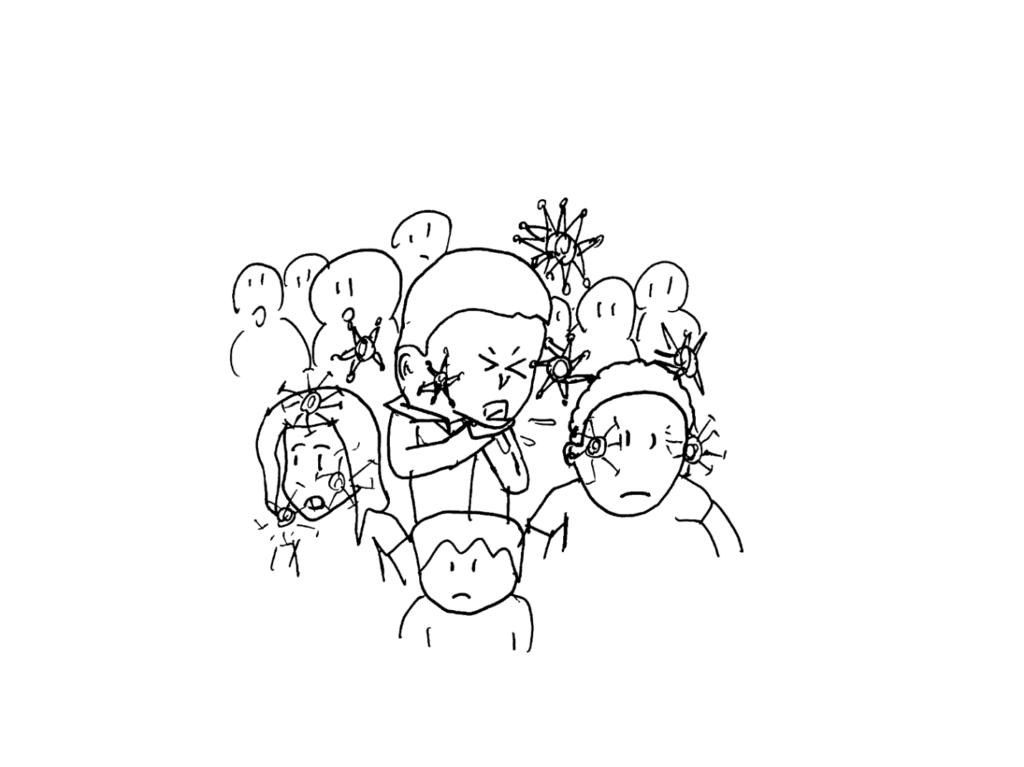
Avoid public transportation.

Stay in an “isolation” room, use a separate bathroom, if available.
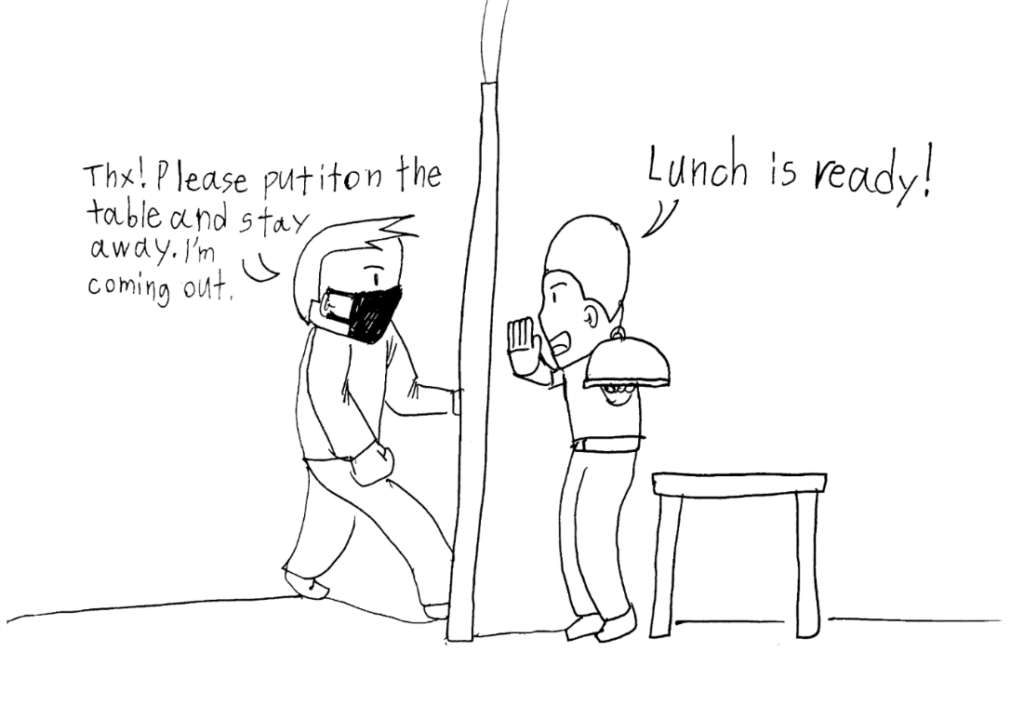
Restrict contact with pets and other animals.
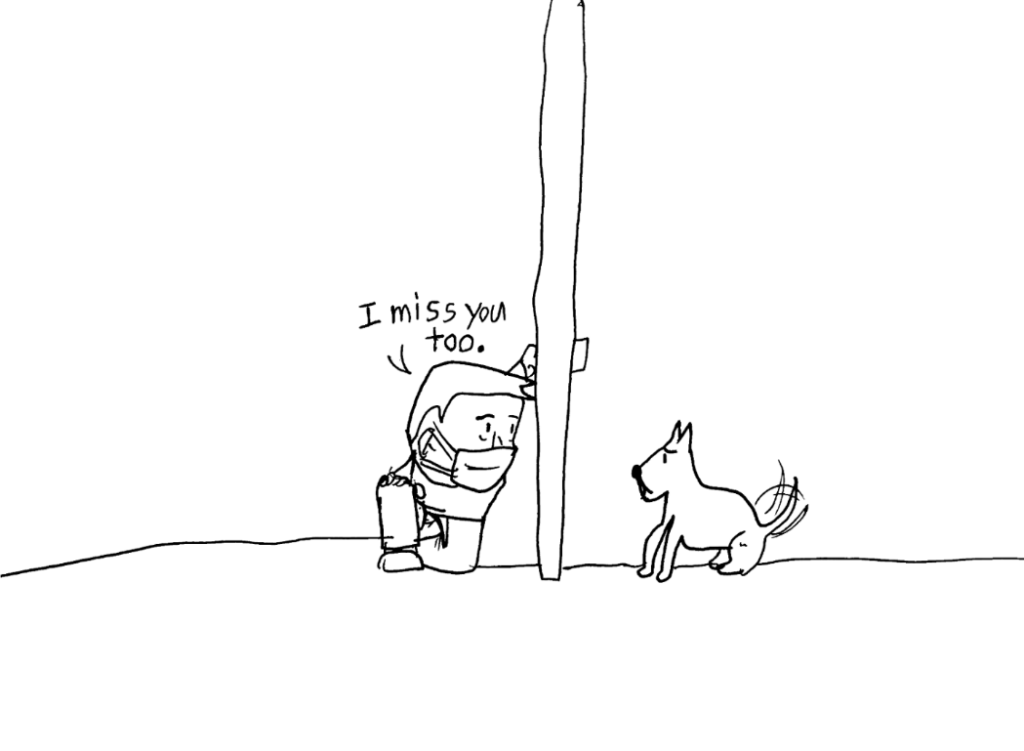
Don’t share items with other members of the household.
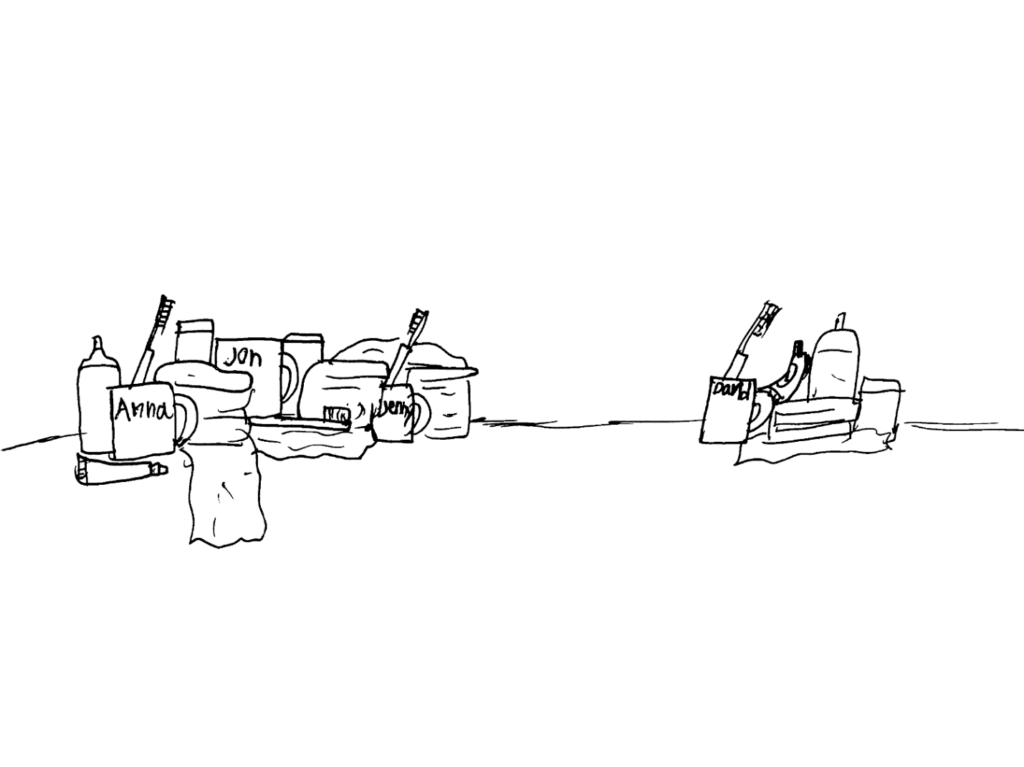
Stay a safe distance (6 feet) from other people.
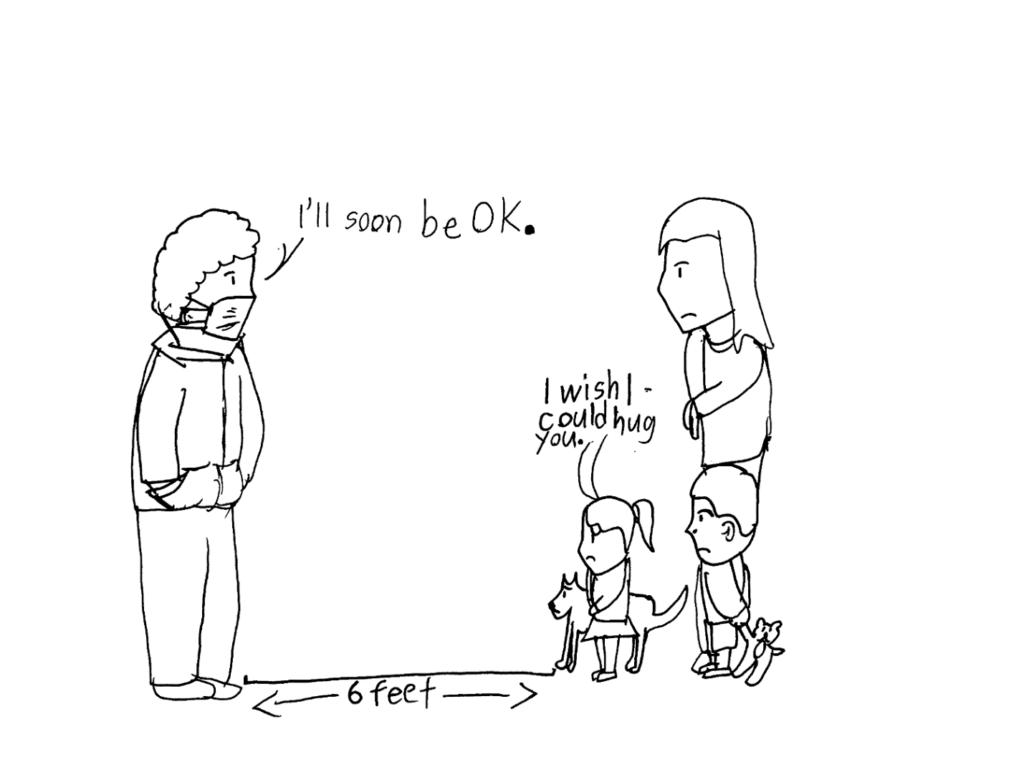
How to take care of yourself?
- Stay in contact with your doctor. Call ahead before visiting your doctor’s office.
- Wear a face mask if you have to go around.
- Cover your coughs and sneezes with tissues, dispose used tissues in a lined trash can and immediately wash your hands with soap and water for at least 20 seconds.
- Clean your hands often by washing your hands with soap and water for at least 20 seconds, or use an alcohol-based hand sanitizer with at least 60% alcohol.
- Avoid touching your eyes, nose, and mouth
- Monitor your symptoms:
- Monitor fever by taking temperatures twice a day.
- Stay alert for cough or difficulty breathing.
- Monitor blood oxygen level using a finger pulse oximeter every day, if available.
- If your symptoms become more severe, call your doctor immediately.
- Follow care instructions from your healthcare provider and local health department.
- Call 911 if you develop emergency warning signs for COVID-19, notify the operator about it, put a face mask before medical help arrives.
| Simple facts about COVID-19 About 80% of people who are ill with mild symptoms are able to recover at home. About 90% of the patients with severe symptoms are able to recover under professional medical care in hospitals. |
References
[1] WHO: Home care for patients with suspected novel coronavirus (COVID-19) infection presenting with mild symptoms and management of contacts.
Writing: Jingyi Xi, PotterW et al, Translation: Jingyi Xi, et al, Scientific Editing: Helen Shih Artwork: Henry Yuanheng Hu
